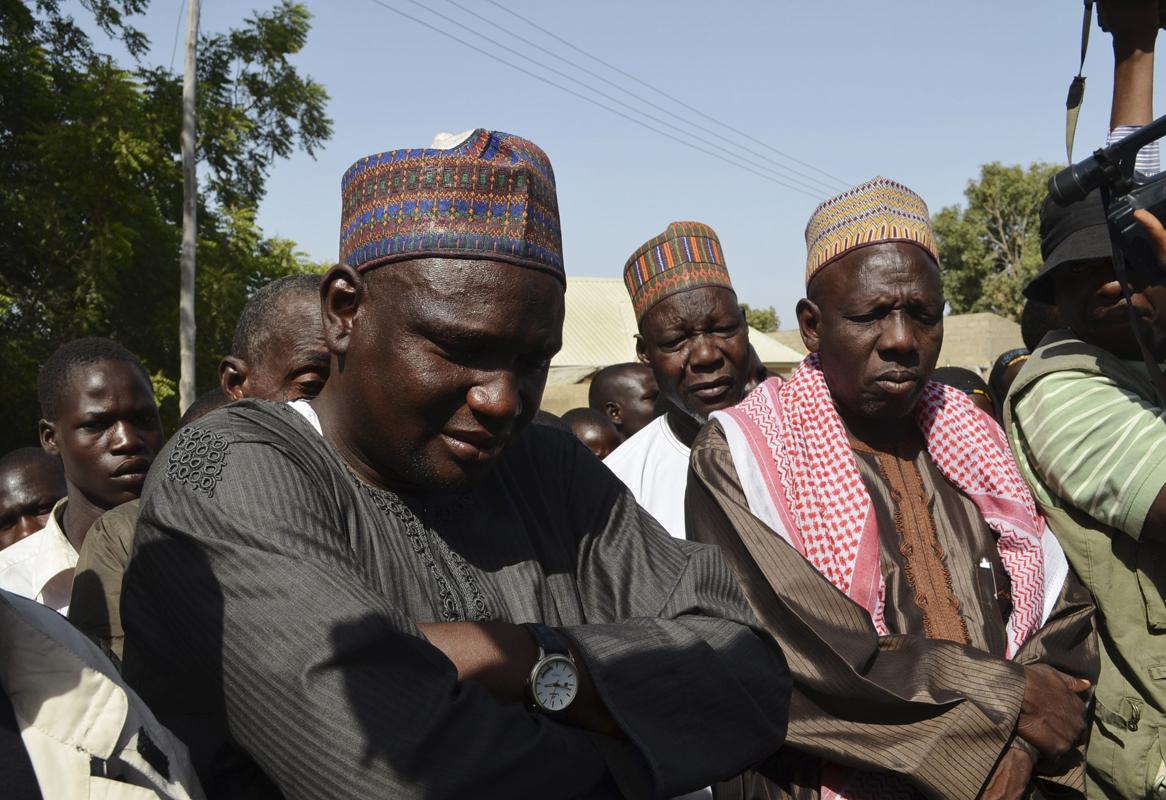The Nigerian Army’s counter terrorism efforts have once more been caught between a rock and hard place, not since the attack on Baga have they been faced with this kind of indecision. Generals and students of warfare will tell you that fighting an unseen enemy is the hardest battle. But freeing abducted girls from the clutches of the insurgents is one that must be done with deft and circumspection. The lives of the girls are at stake here and all avenues must be explored to bring them back. This is a moment for rational thoughts over the irrational sense and brazen ideologies that give insurgents the conviction that they are fighting a just war.
Once more, it is time we took a moment to go through all the world’s hostage scenarios to bring a closure to this through a peaceful overture or with minimal collateral damage -for in the words of William Shakespeare, all is well that ends well. And this is one instance that we wish to end well. It is important that the debate on the rescue of the Chibok girls should be done speaking the language of the insurgents, the Siyar should be invoked, and the Shariah position on the treatment of prisoners of war or the context of Ma Malakum Aymanukum that should be the first port of call -negotiations. Let us all pause, ponder for a moment and negotiate in order for the girls to be released. Even the payment of ransoms should not be ruled out.
Let us not forget that an outright military operation puts the girls at risk, as they can be used as human shields, this has happened before in Baga when insurgents threw mortars from amongst non-combatants.
I digress here -one of the most dramatic daring rescue missions the world has ever seen was the rescue of Isreali passengers hijacked and kept at Entebbe airport by the Popular Front for the liberation of Palestine, assisted by a German extremist cell and the tacit support of President Idi Amin; a week after Israeli Commandos staged a daring raid losing some men and rescuing 102 of the 106 hostages in July 1978.
On 17 December 1996, in Peru, members of a revolutionary group the Tupac Amaru movement took diplomats, business men and military officials’ hostage at an event in the Japanese ambassador to Peru’s house. They were kept hostage for four months and later rescued in a raid by Peruvian Commados with casualties on the Peruvian side.
I have illustrated these scenarios above to show were deft and military tact can come into play; however, the following illustration debunks the popular held view that states do not negotiate with non-state actors like Boko Haram insurgents.
No hostage crisis has gripped the attention of contemporary historians like the Iranian hostage crisis where Fifty-two hostages were held captive for 444 days until they were released in January 20, 1981. Two armed rescue operations failed with fatalities on the American side, the Iranian hostage crisis is one of America’s most intense diplomatic negotiations to free its citizens from captivity in the hands of non-state actors supported by Iranian state. So also even though Germany claims not to have paid anything to secure the release of European tourists abducted on the fringes of Algeria, reports insist that about 5 million Euros was paid to the kidnappers by the government of Mali on Germany’s behalf, to be repaid in the form of future development aid. In 2003 the Taliban also held South Korean missionaries for 42 days and executed two of them, they rest were released after frantic diplomatic negotiations. They Taliban later claimed they received 20 million USD before the hostages were released. The Taliban also extracted a pledge from South Korea to withdraw its troops from Afghanistan.
The federal government of Nigeria must explore all avenues that will lead to the release of the girls of Chibok. The Nigerian nation has woken up from the slumber of tragedy fatigue it was slipping into. Parents and the entire world are asking bring back the girls safely. This is the test before, Nigeria.
Alkasim Abdulkadir is a multi-media journalist, he has worked as a Producer for BBC Media Action and as a news contributor for CNN, Aljazeera, France 24 and Guardian UK. He is Contributing Editor at The Trent.
The opinions expressed in this article are solely those of the author.







